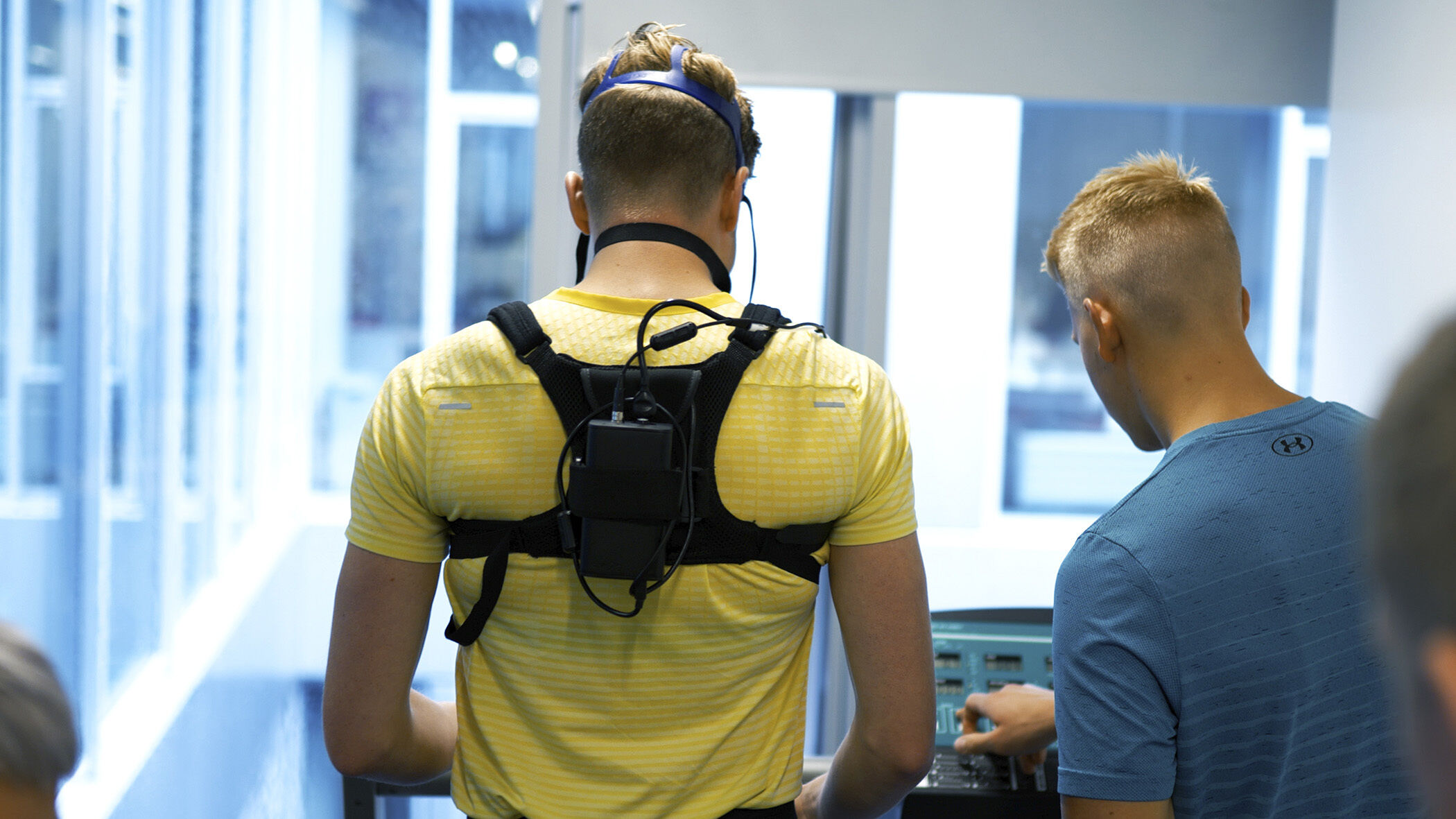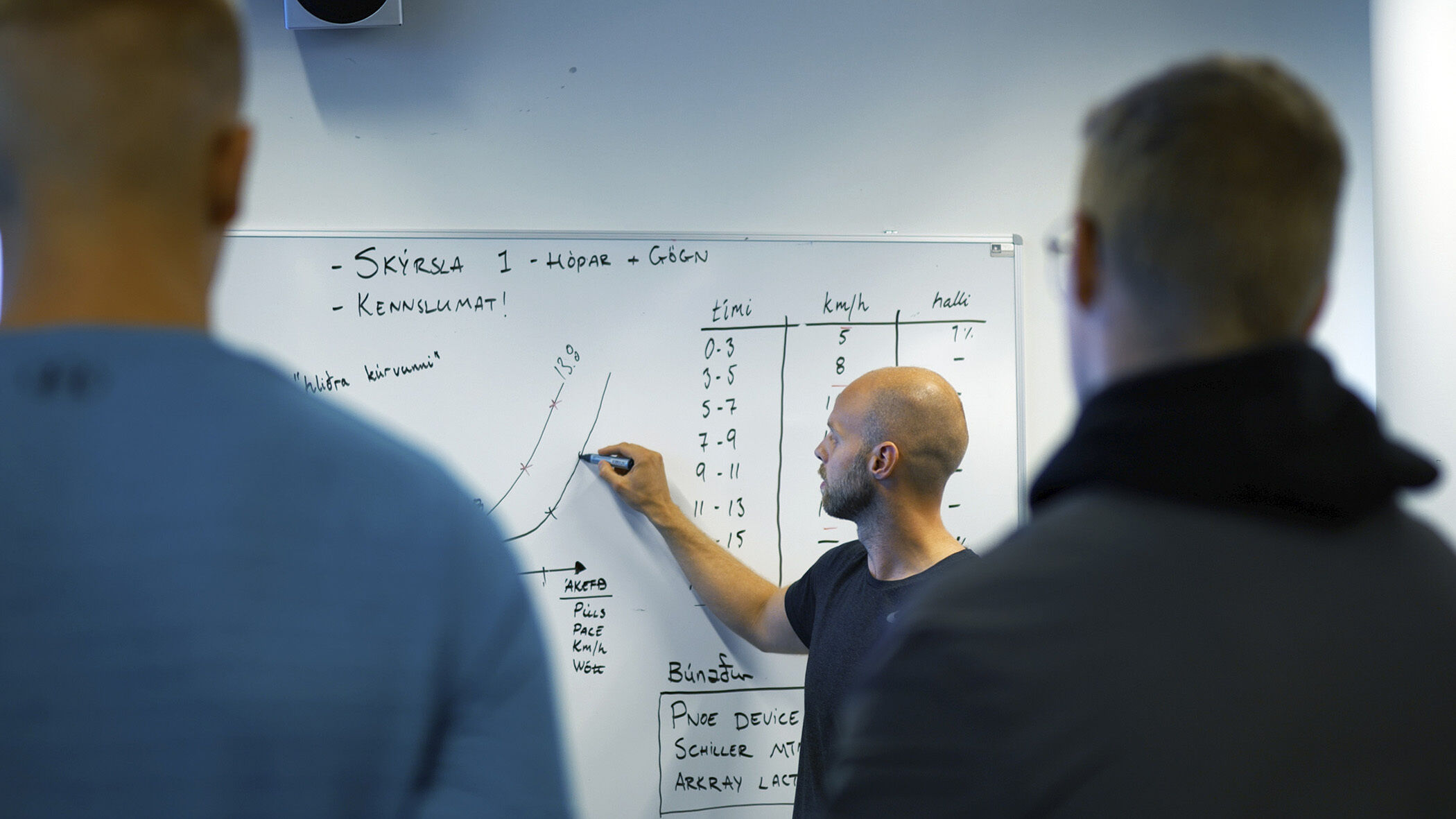Sports Science MSc
In our Master of Sport Science, you are required to complete 120 ECTS. Upon enrollment, you are able to select one of three majors (or lines) for the course (Psychology, Coaching and Performance Analysis). Learn more about each pathway below and the program's structure here.
Students have the opportunity to adapt the subjects to their areas of interest, work independently, and acquire skills that will enable them to work with athletes and members of all ability levels. The program is research-based, academic and practical and ends with a 30 ECTS final project in the focus area chosen by the students.
The program is fully taught in English.
Overview

Credits
120 ECTS.
Language
English.
Length of study
Two years, full-time.
A Unique Program
The MSc in Exercise Science is unique, focusing on coaching competitive and elite athletes and utilising the latest cutting-edge sports science research. Students can work on projects related to their interests across all courses, with a strong emphasis on linking research to practical applications.

Our graduate program will prepare students to apply an expert level of knowledge and understanding to a range of scientific areas that meet the various needs of the sport or health industry. We will ensure our students are theoretically and practically prepared to succeed in a competitive environment, enabling the community, athletes, and teams to achieve lasting well-being and success. Graduates will enter the workforce as adaptable experts who are collaborative problem solvers, capable of applying a high level of critical analyses to contemporary sports science situations and environments.
MSc in Sports Science with an emphasis on Coaching
MSc in Sports Science with an emphasis on Coaching
Includes specialization in the training of athletes and research in the field of sports science. The program comprises subjects that discuss, among other things, sports research and research methods, the organization and philosophy of training, and how to maximize capacity through training based on the principles of physiology, training, psychology, and nutrition.
MSc in Sport Science with a Focus on Performance Analysis
MSc in Sport Science with a Focus on Performance Analysis
Includes specialization in sports-related data analysis. The program comprises subjects that deal with sports science and how to analyze and use data to improve decision-making and performance. Students learn to analyse performance with video analysis programs and sports analysis devices (e.g., GPS). Students also study data science. This programme is for anyone interested in applying technology and data science to improve the performance of their athletes.
MSc in Sports Science with an Emphasis on Sports Psychology
MSc in Sports Science with an Emphasis on Sports Psychology
Includes specialisation in using evidence-based methods of sports psychology to help athletes maximize their performance and well-being during training and competition. It also discusses how the methods of sports psychology can be used in other areas where performance is important. The program comprises subjects that deal with sports science and sports psychology.
Students in the master's program in sports science may have the option to complete an internship aligned with their area of specialisation.
Learning Format
Most courses are taught in modules, five weeks + one week for project work. Typically, classes are held on Tuesday, Wednesday, and Thursday from 12:40 PM to 3:10 PM GMT.
Renowned International and Local Scholars
Leading international scholars in strength and endurance training, sports nutrition, sports psychology, and exercise physiology will share their knowledge and experience with students.
Here are examples of some of the leading international scholars that have taught at our program last year: Dan Gould, Robert Weinberg, Hugh Fullagar, Peter O´Donoghue, Inigo Mujika, Clive Brewer, Ian Jefferys, Chris Curtis, Billy Low, Kevin Tipton, Rick Howard, Rob Duffield, Tim Harkness, Chris Harwood and many others.
Interdepartmental Collaboration
The Sports Science Department collaborates with other departments, such as the Department of Engineering, Department of Psychology, Department of Computer Science and Department of Business, benefiting students in their research endeavours and topic selection.
Sponsored Graduate Positions
The Sports Science Department at Reykjavik University has partnerships with various sports associations, such as the Icelandic Football Association (KSÍ), Handball Federation (HSÍ), and Basketball Federation (KKÍ). Faculty and students conduct measurements of athletes' physical and mental capabilities and provide training guidance.
New Knowledge
By creating new knowledge in their field, students develop expertise and specialisation, with numerous opportunities to explore questions they seek answers to. Students have addressed questions like:
“Why is the quality of the Norwegian women's handball team so high?”
“Does the first goal in the Premier League make the biggest difference?”
“Do rebounds matter more in basketball playoffs?”
Structure
The course is organised as a two-year programme (four semesters), which leads to a 120 ECTS MSc degree.
MSc in Sports Science with an emphasis on Coaching
| 1. year | 2. year | |
|---|---|---|
| Fall | E-708-SATH Performance Enhancement (10 ECTS) E-705-RANN Research in Sport Science (5 ECTS) E-722-TCOP The Coaching Process (5 ECTS) E-707-APST Applied statistics (10 ECTS) |
E-716-MOVE Practical Biomechanics and Injury Prevention (10 ECTS) E-714-RECO Recovery and Nutrition in Sport (10 ECTS) E-718-SPET Sports Performance Topics (5 ECTS) E-716-ENVI Environmental factors and ethics in sports (5 ECTS) E-898-THES Master thesis preparation (0 ECTS) |
| Spring | E-712-TPME Exercise Physiology and Measurement (10 ECTS) E-716-PTTR Philosophy and theory of training (10 ECTS) Elective or internship (mandatory for sponsored students) 10 ECTS |
E-899-THES Master thesis (30 ECTS) |
The course is organised as a two-year programme (four semesters), which leads to a 120 ECTS MSc degree.
MSc in Sport Science with a Focus on Performance Analysis
| 1. year | 2. year | |
|---|---|---|
| Fall | E-708-SAFB Sports Analysis and Feedback (10 ECTS) E-705-RANN Research in Sport Science (5 ECTS) E-722-TCOP The Coaching Process (5 ECTS) E-707-APST Applied statistics (10 ECTS) |
E-708-SATH Performance Enhancement or E-716-MOVE Practical Biomechanics and Injury Prevention (10 ECTS) |
| Spring | E-712-TPME Exercise Physiology and Measurement (10 ECTS) E-716-PTTR Philosophy and theory of training (10 ECTS) E-709-SPAL Sports analytics |
E-899-THES Master thesis (30 ECTS) |
The course is organised as a two-year programme (four semesters), which leads to a 120 ECTS MSc degree.
MSc in Sports Science with an Emphasis on Sports Psychology
| 1. year | 2. year | |
|---|---|---|
| Fall | E-708-SATH Performance Enhancement (10 ECTS) E-705-RANN Research in Sport Science (5 ECTS) E-722-TCOP The Coaching Process (5 ECTS) E-707-APST Applied statistics (10 ECTS) |
E-708-SAFB Sports Analysis and Feedback (10 ECTS) E-714-RECO Recovery and Nutrition in Sport (10 ECTS) E-718-SPET Sports Performance Topics (5 ECTS) E-716-ENVI Environmental factors and ethics in sports (5 ECTS) E-898-THES Master thesis preparation (0 ECTS) |
| Spring | E-708-SPSC Sport Psychology Across Lifespan and Contexts (10 ECTS) E-716-PTTR Philosophy and theory of training (10 ECTS) E-709-SPCL Clinical Sport Psychology (10 ECTS) |
E-899-THES Master thesis (30 ECTS) |
Admission
Students shall have completed undergraduate studies in sports science, physical therapy, health training, biology, education science, or other related disciplines.
How to apply
Ready to take the next step in your academic journey? At Reykjavik University, we welcome students from around the world to join a diverse, innovative, and supportive community dedicated to learning and growth.
Follow the steps below to get started on your application and discover all that Reykjavik University has to offer. We're excited to see you become part of our vibrant academic community!
Read more about how to apply to this programme.
Contact us
We welcome your enquiries via e-mail.


